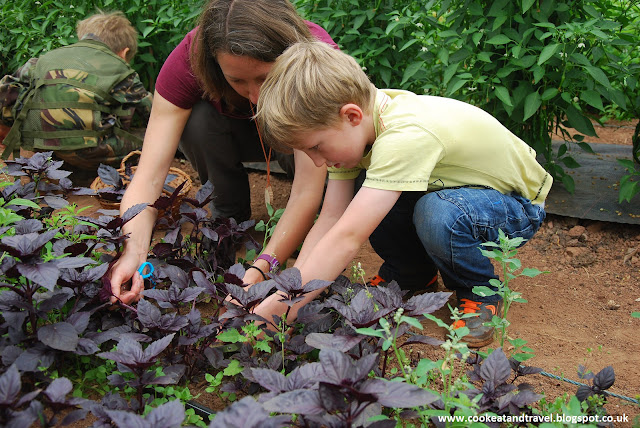Today we will be talking with with Ped Asgarian Managing Director The Community Farm.
JP: Could you give us a summary of your farm and its history, how big is it, what sort of model you are running?
The land used by the Community Farm is owned by local farmer, Luke Hasell. Luke believes organic farming is the future and has been farming organically since 2004. In 2010, Luke and Phil Haughton (Better Food Company) launched the community share offer inviting members of the public to invest in the farm. By the end of March 2011, 409 people had invested an incredible £126,000 in the farm, helping make the Community Farm a reality. This investment has enabled the farm to take over the established vegetable box scheme, organic growing and wholesale business of the Better Food Company and turn it into a Community Supported Agriculture (CSA) project. Now more than 500 people have a share in the farm and have a say in how it is run.
The land used by the Community Farm is owned by local farmer, Luke Hasell. Luke believes organic farming is the future and has been farming organically since 2004. In 2010, Luke and Phil Haughton (Better Food Company) launched the community share offer inviting members of the public to invest in the farm. By the end of March 2011, 409 people had invested an incredible £126,000 in the farm, helping make the Community Farm a reality. This investment has enabled the farm to take over the established vegetable box scheme, organic growing and wholesale business of the Better Food Company and turn it into a Community Supported Agriculture (CSA) project. Now more than 500 people have a share in the farm and have a say in how it is run.
We differ from other CSA projects in so much as we have paid staff members to help deliver and run the project, and we are registered as a Community Interest Company (CIC). As a not-for- profit social enterprise, it is our aim to reinvest any money made from the trading arm into projects on the farm that will benefit the wider community.
As well as growing and selling organic and locally sourced food, we also involve people from our local community in growing and learning about the food they eat. Working with a network of organic producers and local farmers who share our ethics, we supply fresh, local and organic food via an organic box delivery service. We currently sell about 400 vegetable boxes a week, and farm on 10 acres of land. We work closely with organic farmers in the West Country to ensure that vegetables that we buy, we buy at an ethical price that is above the market average.
JP: Is your produce organic?
Yes, 100% organic! We choose to farm organically out of a desire to protect the environment. We also want to have greater confidence that the food we are producing and distributing is wholesome and healthy.
JP: What are you most proud of about your farm and why?
I am proud of everything that we have achieved in the last 5 years. To have survived all the trials and tribulations that any new business experiences whilst still serving a social purpose is a fantastic achievement in and of itself.
However, if I had to choose one thing I am most proud of it would be the learning experiences we provide for local children, adults and vulnerable people, such as the outstanding work we have done with the Bristol Drugs Project over the past two years. Through our work with schools we have helped children find out about organic farming and sustainable food production; both through farm visits or outreach. Children are taught about soil structure, organic pest control, the difference between organic and conventional farming, the wildlife on the farm, and the bugs and insects that are an important part of it all.
JP: What services do you offer?
We offer a range of services and opportunities. We operate an open farm for volunteering (Monday to Saturday), with designated days where we put transport on for people who want to experience being a Community Farmer; Earthwise offer leaning experiences at the farm for children and adults throughout the year, teaching them about growing, seasonal eating and understanding where your food comes and how to cook it; we sell produce at farmer’s markets including Bath and Keynsham; and we operate a vegetable box delivery service in Bristol, Bath, Frome and the Chew Valley which has been shortlisted for the Soil Association organic vegetable box of the year at the BOOM Awards.
JP: Are you open to vegetable enthusiasts visiting?
Everyday! Well…apart from Sundays. Whilst some farmers say get off our land, our mantra is “Get on our land”.
Vegetables! And a lot of them. Plants have just begun going into the ground for the new season, and we are just reaching the end of the hungry gap (the time of the year when British produce is at its most scarce). If you come to the farm now you can get involved in sewing courgettes and summer squash hoeing turnips and planting tomatoes. We take a market garden approach to our growing and try to grow a variety of produce including cucumbers, lettuce, leeks, cabbages, khol rabi, beans squash and chillies!
JP: Do you have a favourite vegetable to grow?
I really enjoy watching courgettes and cucumbers grow. I love the way they explode out of the flowers!
JP: Thanks again for your time, good luck for the seasons to come.
Interviewed by Jan Philips
To follow The Community Farm visit their website and FB page.







No comments:
Post a Comment